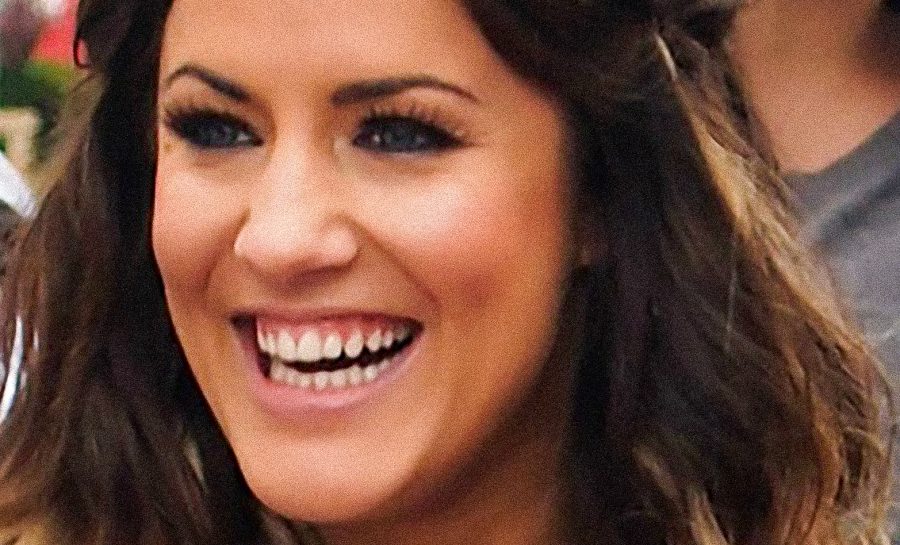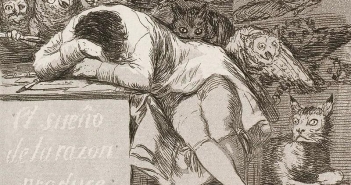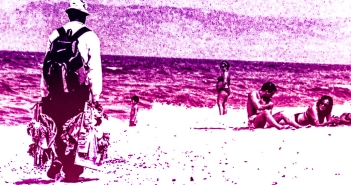Whenever a celebrity dies of natural causes people respond in unified mourning. If a celebrity dies tragically however – from an overdose or by their own hand – people react with volleys of blame-calling.
It is a natural reaction for us to want to cast blame somewhere. We point the finger at nameless, faceless entities manifesting greater evil than we would ever be capable of – whether trolls, social media or the tabloids. We assure ourselves these remote actors are the true killers.
The hardest thing I have ever had to learn – one I am still struggling to get my head around – is that with suicide, we never fully know.
The Denial Stage
Grief comes in waves. These waves become less consistent, less engulfing over the years. But when I feel one breaking, after the passing of an anniversary, bumping into an old mutual friend, or after a dream where I’ve seen his face and kissed him back to life, I often revert to the denial stage.
I shut my eyes, imagine travelling through time to precisely the right moment as an ethereal angel from the future, where I summarise a breath-taking, lifesaving speech that will change everything.
Wait! I’ve carved a way out for you after all these years. I have the cure. You don’t have to die. You’re free!
Then we eat ham and cheese toasties. I make fun of the jar of mayonnaise he insists on keeping by his bedside locker. We watch Beverly Hills 90210 – with the original cast obviously – smoke a joint, laugh about his previous intentions. Everything is light. I’ve wiped away the darkness.
This is the sort of wistful longing that awaits Caroline Flack’s family and friends as they attempt to heal from such a heart-wrenching event. They have a lifetime of such longing in store – an ache that is felt like an infected tooth which, if untreated, will be left to rot. It is nothing like the collective mourning and sense of injustice we feel for her.
Having said all that, I don’t think we should belittle the grief that can be felt for celebrities we’ve never met.
Celebrities can become a part of our daily lives. Flack fans will think of the times they saw her glistening locks and beaming smile as they sat at home watching Love Island or The Extra Factor. They’ll remember the satisfaction and sense of girl power when she held Amber Gill’s hand[i] after Michael Griffiths confessed to coupling up with another lover in Casa Amor, and blaming it on Amber for being chaaaldish.
Even think back to 2014, when her career skyrocketed after deservedly winning Strictly Come Dancing.
Searching for Answers
Through my own search for answers I learned how Caroline was put on anti-depressants, right after this success, in order to cope with the pressure.
Living as we do, in a two-dimensional world of the virtual and the real, we paste together a narrative of who a celebrity really is when they are alone. We generate this picture from social media identities and assorted news stories, all laying claim to differing truths or alternative versions of the same story. And if that celebrity acts in a way we do not expect, we feel it is our right to cast judgement. After all, we think, it is they who exposed themselves to the unforgiving limelight.
The difficulty with rushing to judgment on celebrities trapped in this secondary world is that no one has been trained in how to conduct themselves online. Societal boundaries and rules do not exist in the same way.
Considering the internet only emerged less than thirty years ago this is hardly surprising. We are expressing ourselves through the intermediary of a screen and often take on a pseudonym.
Temptation is also rife here. We can now find instantaneous answers to almost anything we want to know. And once that hunger has been sated, does the truth even matter?
Brain Studies
Brain studies show that we are predisposed to put more emphasis on negative than positive thoughts. A study designed by four psychologists from Case Western University and the Free University of Amsterdam, entitled ‘Bad Is Stronger Than Good’, explores how ‘throughout our evolutionary history, organisms better attuned to adverse outcomes would have been more likely to survive threats, which increases the probability of these genes being passed on.’[ii]
In other words, our brains are not designed for happiness. They are hardwired for survival. While the world around us has developed far beyond the hunter-gatherer stage, our brains are still looking out for the next challenging situation.
We literally have to fight for our positive thoughts to overcome negative ones. Now, imagine a public figure confronting a media storm. Think of the hundreds, or even thousands of comments, stories or headlines, and then the very real consequences of losing your job, partner and house as a result of these damaging misconceptions.
Consider how much brain power is required to reverse that swarm of negativity. Even those armed with the greatest resilience would struggle. And Caroline was not someone who was in a place of strength. In October of last year, before the public outcry, Caroline admitted to being in a weird place, saying ‘when I actually reached out to someone, they said I was draining.’[iii]
Darkest Hour
I have experienced pain at the death of a celebrity passing before.
I remember when Mac Miller overdosed in September 2018, I spent two days in bed. My mum found me cradling my cat, whimpering in the sitting room. I had to explain bashfully that everything was fine, except that a famous rapper, who of course I did not know personally, had died at the age of twenty-six.
But there was something so haunting about the news of Caroline that prompts me to write. A heavy, stomach-filled-with-cement, stabbing feeling. I can feel it now as I type. It was a painful realisation of: ‘I get it. I get why she felt as if she had no way out.’ I can see how so many paths of hope were blocked for her.
In some of my hardest times, I remember likening mental anguish to the feeling of drowning and looking around while the rest of the world is breathing easily.
If I had a press pack or a bodycam documenting times I’ve been at my lowest, at my darkest, at my most embarrassing or – for want of a better word – ‘craziest’, a bystander might not see any difference between that behaviour and how we imagine Caroline to have acted on that night in December. Perhaps my admission is a way of acknowledging how ill-equipped any of us are to act as judge and jury.
Search for the Light
The weight of suicide is a heavy one to bear. The pain of the victim does not dissolve after they are gone. It is left with the survivors to carry forever.
The statement Caroline was forbidden to post, which has since been released by her family has arrived much too late. We had already found her guilty.
"Within 24 hours my whole world and future was swept from under my feet…"
Her mum has also released a statement surrounding her daughter's death.https://t.co/NhM2lWEzlb
— LADbible (@ladbible) February 19, 2020
It is difficult to find hope in tragedy, but even now we must search for the light, if only to guide those trapped in the darkness.
Russel Brand, a pure and eloquent voice for celebrity eulogies, gave me bittersweet hope. In part, it reads as such:
We have the power to hurt one another and the power to heal one another, perhaps that’s the only power we have. We can never see the positive impact of our actions, the times when our kindness and compassion may have saved a life, but we can see what happens in its absence.
There is freedom in asserting our own power. It is a responsibility that should be taken seriously. However, it is important to understand that no amount of love or affection can stop someone from ending their life.
Ultimately, we have no control over anyone’s decisions to do so. But what we do have control over is ourselves. We control what we think, how we react to things, how we treat other people, what we read, watch or write. This is the true power of human existence.
For the survivors, there are pages and pages of words left unsaid to the person they have lost. I’ve been writing my own for years. And I’m tired of carrying this. I’m tired of the pain. I’m tired of watching bright, talented and special people die.
So, for those who can see no way out: know that you are worth your weight in gold. Know that the people who love you would move mountains just to keep you here. Know that I would sacrifice every star in the sky to transcend time and bring back who I lost.
Search for the light. Even if it is the tiniest little glint. I promise you it is there.
[i] Tilly Pearce, ‘Caroline Flack’s reaction to Love Island’s recoupling clash between Amber Gill and Michael Griffiths is priceless’ Metro, July 3rd, 2019, https://metro.co.uk/2019/07/03/caroline-flacks-reaction-love-islands-recoupling-clash-amber-gill-michael-griffiths-priceless-10111688/
[ii] Roy F. Baumeister, Ellen Bratslavsky, Catrin Finkenauer, ‘Bad is Stronger than Good’, Review of General Psychology2001. Vol. 5. No. 4. 323-37 https://journals.sagepub.com/doi/10.1037/1089-2680.5.4.323
[iii] Tilly Pearce, ‘Caroline Flack’s reaction to Love Island’s recoupling clash between Amber Gill and Michael Griffiths is priceless’ Metro, July 3rd, 2019, https://metro.co.uk/2019/07/03/caroline-flacks-reaction-love-islands-recoupling-clash-amber-gill-michael-griffiths-priceless-10111688/




